Lander Announces Deal With Gowanus Locals, Rezoning Poised to Commence
In advance of a City Council vote on the long-in-the-works Gowanus rezoning, Brad Lander’s office sent out a press release announcing a deal has been struck with NYCHA residents and Community Board 6 to win their support.

Gowanus Canal. Photo by Susan De Vries
In advance of a City Council vote on the long-in-the-works Gowanus rezoning, Brad Lander’s office sent out a press release announcing a deal has been struck with NYCHA residents and Community Board 6 to win their support. The deal includes almost $200 million in up-front funding from the city for NYCHA repairs, low-cost artist studios, green roofs, restrictions on sewer discharges from new buildings during storms, $174 million in city funding for sewer improvements, and a canal esplanade.
The historic rezoning will bring towers up to 40 stories high over a polluted 82-block area that includes a Superfund site. The rezoning will create 950 units of affordable housing at Gowanus Green — initially slated to be rezoned separately — as well as an estimated 2,000 units of income-targeted housing in market-rate buildings plus an estimated 5,500 market-rate units.
A coalition of community residents known as Voice of Gowanus said Tuesday the rezoning poses environmental dangers and they plan to sue.
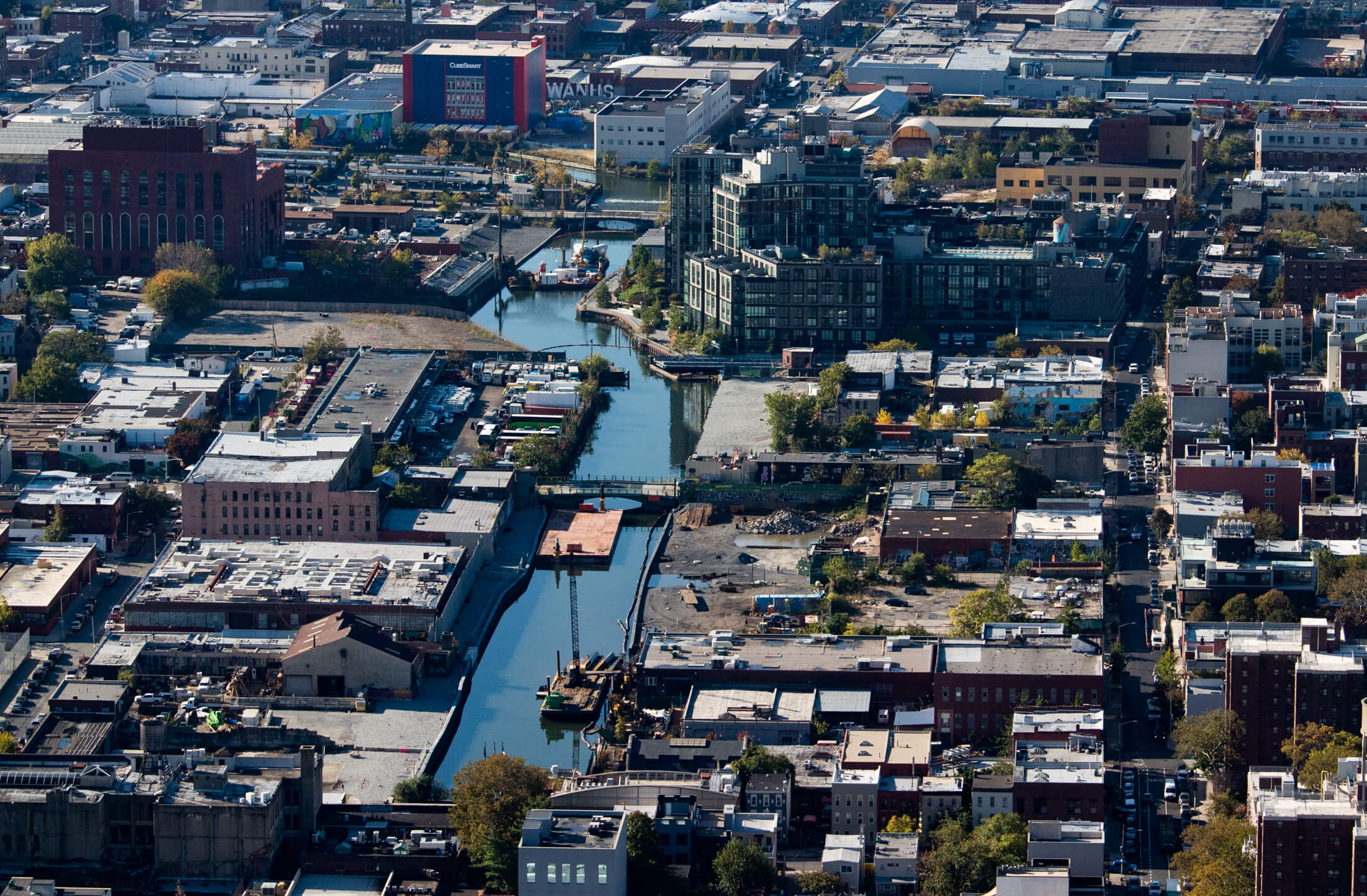
Here is the full text of the press release:
Council and Community Members Announce Agreement with City Hall in Gowanus Neighborhood Rezoning, Achieving a Plan for Inclusive and Sustainable Growth
Years of community engagement result in a plan that makes an unprecedented investment in NYCHA developments and includes the most stringent affordability, sustainability, and mixed-use requirements of any previous neighborhood rezoning.
NEW YORK, NY – Council Members Brad Lander and Stephen Levin, leaders of Brooklyn Community Board 6, and members of the Gowanus Neighborhood Coalition for Justice, announced this morning that they have reached consensus with the de Blasio Administration on “Points of Agreement” (POA) that ensure the Gowanus Neighborhood Rezoning will meet community goals.
The Gowanus Neighborhood Rezoning, the largest under the de Blasio Administration, will enable the construction of approximately 8,000 new housing units, nearly 3,000 of them affordable to low- and moderate-income families who today cannot afford homes in the area, in a vibrant, mixed-use, mixed-income neighborhood around a remediated and revitalized Gowanus Canal. The rezoning includes the most stringent affordability and sustainability requirements of any previous neighborhood rezoning.
The “Points of Agreement” between City Hall and the Council Members, the result of extensive community organizing and public engagement, provides that every one of the 1,662 units in NYCHA’s Gowanus Houses and Wyckoff Gardens developments will receive a comprehensive interior modernization estimated at $200 million. The City will invest hundreds of millions more in flooding and stormwater infrastructure, parks, schools, and workforce development, and substantial funding commitments for renovations at the Pacific Branch Library ($14.7 million) and the Old Stone House ($10.95 million).
Community conversations about the future of the neighborhood have been active for nearly a decade, including the “Bridging Gowanus” community planning process convened by Council Member Lander’s office in 2013, that worked to identify shared principles for any development in the area. The Department of City Planning commenced its community engagement in 2016 with five working groups open to all community members and scores of public meetings, attended by thousands of residents and stakeholders.
The Gowanus Neighborhood Coalition for Justice, a coalition of tenants, homeowners, public housing residents, small business owners, artists, environmentalists, and affordable housing advocates, organized hundreds of residents to elevate the voices of community members usually left out of the City’s planning processes. GNCJ developed a broad community platform, including threekey
demands that today’s Points of Agreement address:
Upfront funding to meet the capital needs of the public housing in the Gowanus neighborhood, with oversight by NYCHA residents.
POA commitment: The City will fund comprehensive in-unit renovations of all apartments at Gowanus Houses (1,134 units) and Wyckoff Houses (528 units) at an estimated cost of $200m. This work includes replacement of kitchens, bathrooms, plumbing, electrical, flooring, interior doors, and lighting fixtures. The City has additionally committed to regular reporting and consultation with residents through the construction process to oversee commitments and protect tenant rights. The City will also fulfill previous commitment to renovate and reopen the Wyckoff Gardens and Gowanus Houses community centers.
Mandate “net-zero” combined sewage overflow (CSO) from new construction created as a result of the rezoning.
POA commitment: In order to ensure that new development does not pollute the Gowanus Canal, the City has adopted the stringent new 2021 Unified Stormwater Rule that will go into effect before any construction begins. The rule increases on-site requirements for stormwater detention and introduces new retention requirements, which will reduce CSO volumes and events, and help address localized flooding. The City is also committing to a $174 million upgrade to sewer infrastructure to address long-standing flooding along 4th Avenue, which is especially severe at the intersection of Carroll Street.
Gowanus Rezoning Oversight Task Force to monitor compliance with public and private commitments.
POA commitment: To ensure compliance with public and private commitments, the agreement includes commitments by all relevant City agencies to regular reporting as well as senior agency staff participation in a Community Oversight Task Force dedicated to monitoring rezoning-related commitments. The Task Force will be supported by an independent facilitator, and include representation from elected officials, CB6, NYCHA residents and leaders, and core community organizations and stakeholders.
On June 3, 2021, Community Board 6 held a highly-attended, indoor/outdoor, hybrid in-person and online public hearing as part of the Uniform Land Use Review Process (with additional opportunities for public input ordered by Judge Katherine Levine pursuant to a lawsuit). Out of that hearing, and its own many years of work, CB6 voted “Yes with Modifications,” including an extensive set of recommendations that
are reflected in today’s agreement. Borough President Eric Adams also recommended to approve the rezoning with modifications, and stood with public housing residents, GNCJ members, and the Council Member to insist on adequate funding for public housing.
The Gowanus Neighborhood Rezoning is the first MIH neighborhood rezoning in a whiter, wealthier neighborhood. For the first time ever, a Racial Impact Study was completed providing strong evidence that the plan will result in a more racially and economically inclusive neighborhood.
In addition to historic investments in public housing, stormwater retention, and flood readiness, the Gowanus Neighborhood Rezoning includes:
Nearly 3,000 units of affordable housing, including a commitment to 100% affordability on the City-owned Public Place site.
The plan for Gowanus Green includes approximately 950 units priced for extremely low to low income tenants and homeownership opportunities for moderate income families, as well as a new 1.5 acre park and space for a potential new school. The Gowanus Green site will be extensively remediated, under the supervision of the EPA, NYS DEC, and NYC DEP. The EPA has stated that it is feasible for the site to be cleaned up to safely allow for these uses.
On sites, the rezoning will require either Mandatory Inclusionary Housing (MIH) Option 1, which requires 25% of units affordable to households at or below 60% of AMI, with 10% of units affordable to households at or below 40% of AMI; or the “deep affordability” MIH option of 20% of units affordable to households at our below 40% of AMI ($43,000 for a family of 3). This is anticipated to generate approximately 2000 affordable units.
Investments in new open space, including a resilient waterfront esplanade along the Gowanus Canal.
The City has committed to renovations, following meaningful community engagement, at the new Gowanus Green public park and Boerum Park, and Thomas Greene Park. It has committed to build new public spaces on the Salt Lot and the Head End CSO site, following construction of each Superfund-mandated CSO tank, the Bond Street Street-End and at “Transit Plaza” along the Canal by the Smith/9th subway station.
Canal developers will be required to build and maintain a new 40-foot public esplanade, following detailed guidelines to ensure continuity and public access between sites, and designed for flood resiliency through the year 2100.
Environmental requirements on new development.
In addition to the waterfront esplanade and new stormwater management requirements, all new buildings must:
Dedicate 100% of their rooftop area to solar, wind, or green infrastructure pursuant to City legislation from 2019.
Meet city flood elevation standards, determined on a site-by-site basis, which exceed FEMA standards.
Complete remediation of any contamination indicated by the new e-designation, with oversight by the City and State.
Innovative new zoning tools to address infrastructure needs.
To ensure local school capacity can accommodate neighborhood growth, on certain large sites around the canal, developers can exempt floor area leased to NYC School Construction Authority for the development of new public schools as new seat-need comes online.
The plan includes an easement requirement and new citywide transit bonus available for developers along 4th Avenue in exchange for transit improvements.
Historic preservation and tools to keep Gowanus creative and mixed-use.
Five historic buildings were designated as landmarks during the rezoning process, including the Old American Can Factory and Powerhouse Arts.
Mid-block areas will remain zoned for industrial and commercial use, with modest additional development rights that do not allow for hotels or self-storage.
The new “Gowanus Mix” use group codified in zoning will generate over 300,000 square feet dedicated space for light manufacturing, arts, and non-profits.
Community, social service, and workforce development resources.
City Hall will expand the MAP (Mayor’s Action Plan for Neighborhood Safety) initiative to Gowanus Houses and Wyckoff Gardens, an investment of approximately $2 million annually. MAP brings together neighborhood residents and government agencies to reduce crime. Strategies including youth development and employment, conflict mediation, sports and arts programs aim to address concentrated disadvantage and physical disorder and promote neighborhood cohesion and strong citywide networks.
Investments of approximately $1 million annually in workforce development for local residents, with a focus on NYCHA residents, including dedicated funding for industrial job training.
Commitments to street safety improvements at high-crash intersections and a comprehensive traffic study of 3rd avenue and the IBZ to address road safety and truck circulation issues. The City will provide over $10 million for new curb extensions and widened sidewalks, bioswales and other green infrastructure, and street furniture such as benches, wayfinding signs, bike racks, and street trees.
Tenant protections including an expanded Certificate of No Harassment program (recently adopted citywide through legislation sponsored by Council Member Lander), resources for tenant outreach, and a tailored rezoning that protects rent-stabilized units.
The full Points of Agreement document will be available at the City Council’s Zoning Subcommittee meeting prior to the vote today.
In addition to the public commitments in the rezoning plan, developers in Gowanus have committed to additional affordability and use restrictions to preserve the industrial and arts character of the neighborhood.
Affordable artists studios: 10 property owners of large sites along the Canal and bordering Thomas Greene Park have committed to enter an agreement with Arts Gowanus to provide over 150 permanently-affordable artist studios in new developments. Arts Gowanus will match eligible artists with available spaces. A portion of the studios will be available for low-income artists, including NYCHA residents, to rent at a more deeply reduced rate. As a part of the agreement, Arts Gowanus will occupy and manage a Gowanus Community Arts Center, including a gallery.
Parks Improvement District:
Ten developers have committed to cooperate in the formation of a Gowanus Waterfront Business Improvement District focused on stewardship, access, and public programming of open spaces, especially the new waterfront esplanade along the canal. This entity will provide maintenance, public programming, technical assistance, and environmental and ecological advocacy. The steering committee is expected to hold its first meeting in December 2021, and will flesh out details and develop support with input from community members and stakeholders.
All told, the Gowanus Rezoning’s three thousand new units of permanently affordable housing, a continuous public esplanade along the waterfront, climate-resilient buildings and landscaping, and use restrictions to preserve arts and industry are among the most aggressive, forward-looking set of requirements ever imposed on developers in the United States.
“Today’s agreement shows that community-led, inclusive, sustainable growth is possible. After nearly a decade of conversations among neighbors, and in partnership with the Department of City Planning and City Hall, this community has created one of the best models for inclusive growth anywhere, with strong attention to equity and affordability, and mindful of the environmental history and future of this area. Debates about development are not easy, but I am truly proud of the way we’ve engaged them here. Together, we are setting the stage for a more diverse, more sustainable, thriving, creative neighborhood that will welcome new residents while improving and preserving the ability of public housing residents, artists, small businesses, and neighbors to continue to thrive here for generations to come,” said Council Member Brad Lander.
“The Gowanus Rezoning will be a milestone in land use actions in New York City,” said Council Member Stephen Levin. “Discussions about the Gowanus neighborhood, one of the most vibrant and historic in Brooklyn, have been ongoing for decades. And today we reach a turning point where those discussions have resulted in action. This rezoning will result in not only new housing including a substantial increase in affordable units, but unprecedented investments in our public housing, improvements in the sewer systems and monitoring of our combined sewer overflows, preservation of manufacturing and light industry, and a commitment to protect our artists and public spaces. There are so many people that helped bring us here but first and foremost I want to thank the residents of Wyckoff Gardens and Gowanus House and the members of the Gowanus Neighborhood Coalition for Justice. They provide a guide to making sure we are always focused on what is most important. And of course thanks to all the staff and Council Member Lander who attended more meetings then we can count in the name of true engagement. This process only begins here and it is up to the future elected officials to ensure that all the promises are met but we couldn’t have given them a better place to start.”
“Today is the end of the beginning. The beginning of a more inclusive, resilient and equitable Gowanus where the hard-fought actions that the Gowanus Neighborhood Coalition for Justice, NYCHA tenants and Councilmembers Lander and Levin secured will become a reality. FAC is incredibly excited about the critical role that our 100% affordable, 950 unit, Gowanus Green project will play in affirmatively furthering fair housing in the community and about the many other investments and model commitments – notably to NYCHA tenants and accountability – that are reflected in the Points of Agreement with the administration. Thank you to our incredible council members, their staff and Council land use staff for being true partners throughout this process. Thank you too to Mayor de Blasio and his team for advancing this important neighborhood rezoning during a challenging time when the importance of furthering equity and justice is painfully clear,” said Michelle de la Uz, Executive Director of Fifth Avenue Committee (FAC).
“We are thrilled that this rezoning will allow artists to continue to thrive in Gowanus. We have been actively fighting artist displacement in the community for years and there is a great need for affordable artist workspaces. The CBA, which goes into effect November 10, 2021, will ensure Gowanus continues to be a vibrant and creative neighborhood for artists of all income levels,” said Arts Gowanus Executive Director Johnny Thornton. “We are extremely thankful for Councilmember Brad Lander’s support and Land Use and Budget Director, Julia Ehrman, for making our creative community a priority in this rezoning.”
Related Stories
- Local Pols Ask Feds to Advise on Impact of Gowanus Rezoning on Superfund Cleanup
- City Council Hears From Locals, Pols on Controversial Gowanus Rezoning
- Gowanus Residents Reject Tall Buildings at Final Bridging Gowanus Meeting
Email tips@brownstoner.com with further comments, questions or tips. Follow Brownstoner on Twitter and Instagram, and like us on Facebook.

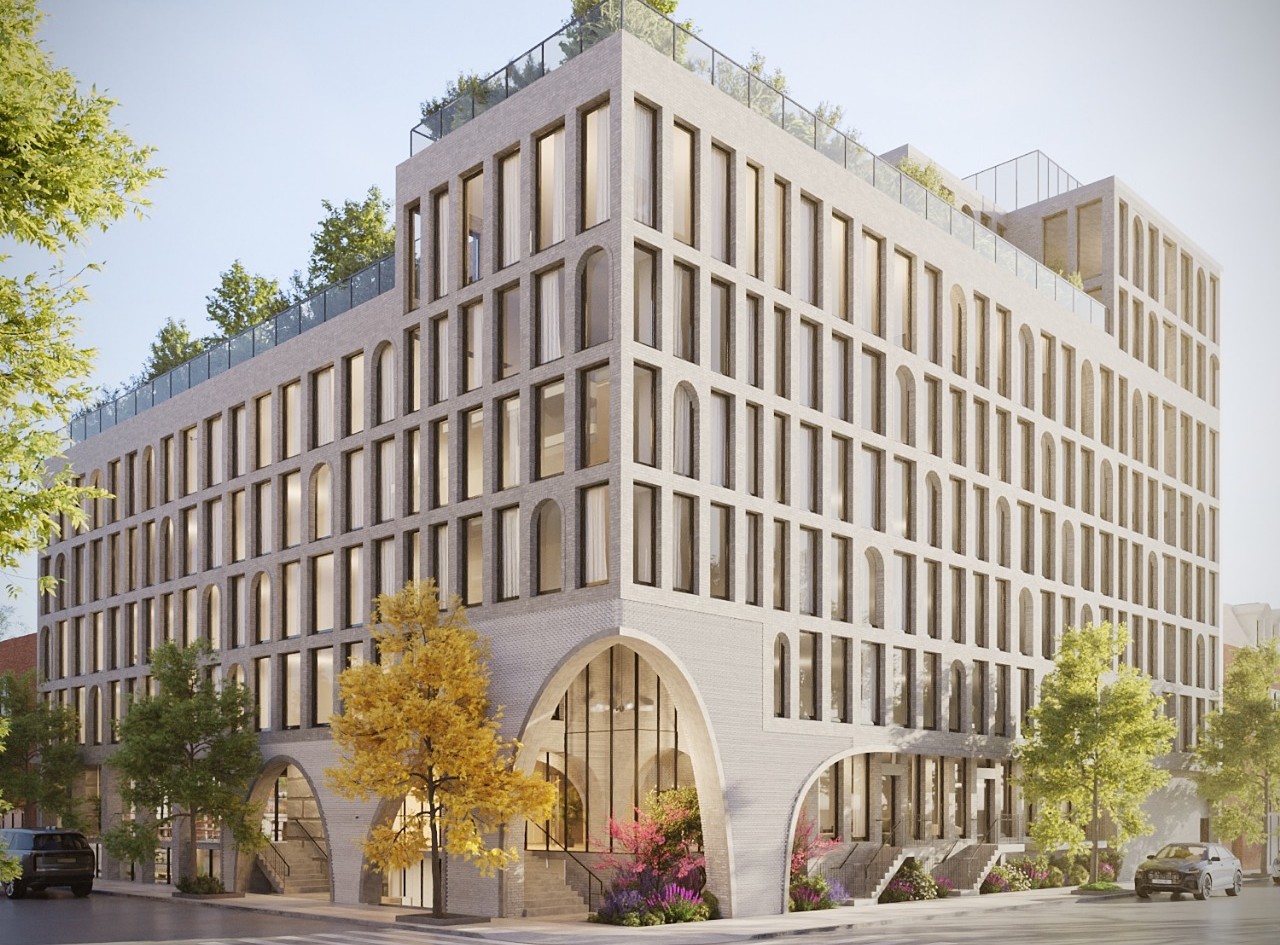
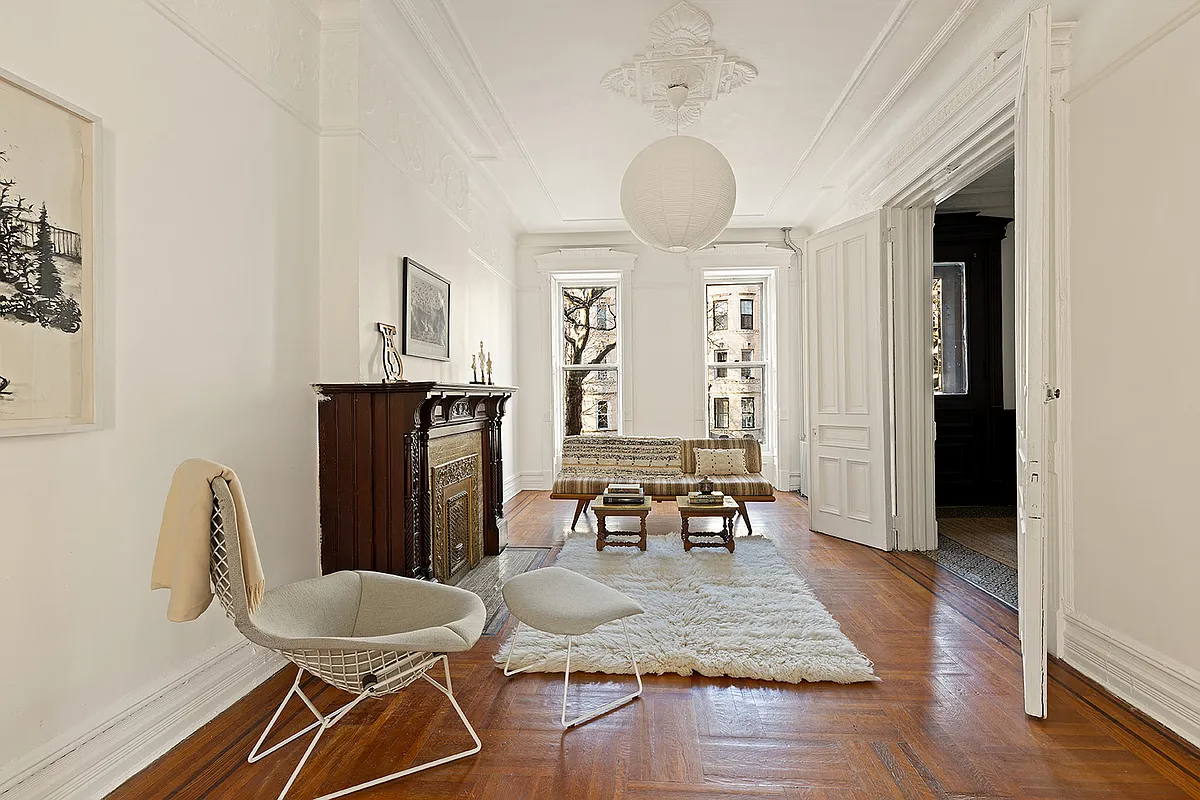
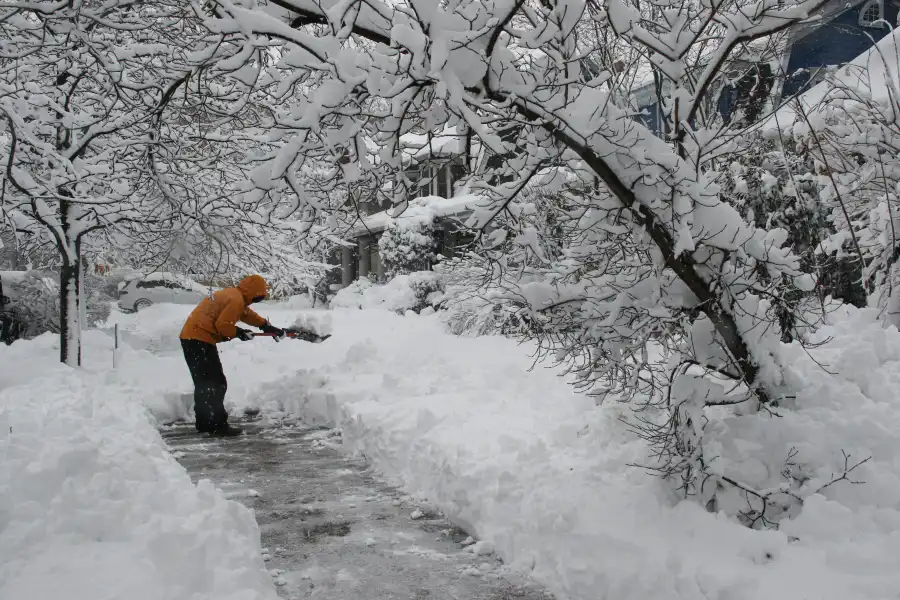
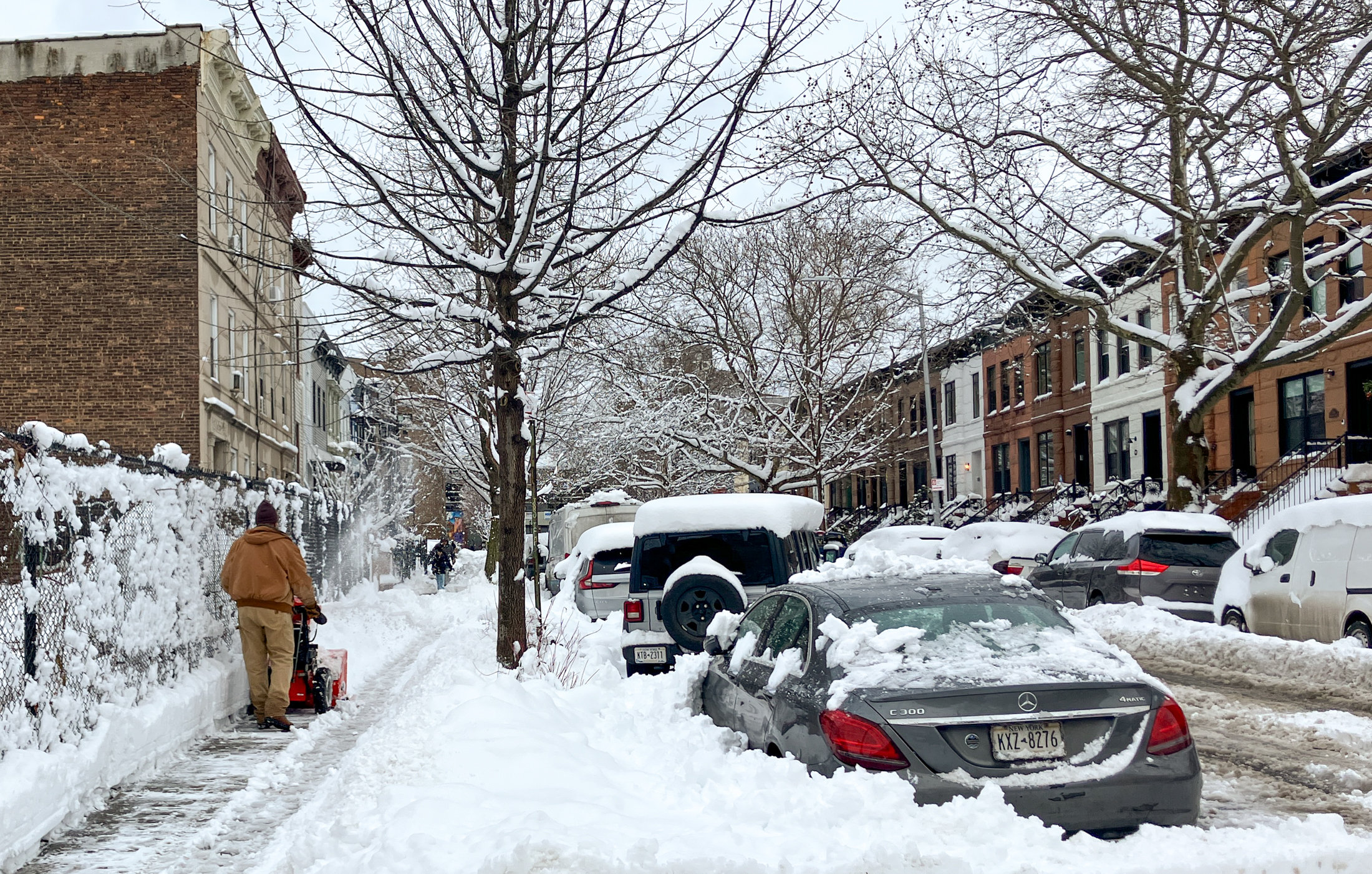
What's Your Take? Leave a Comment